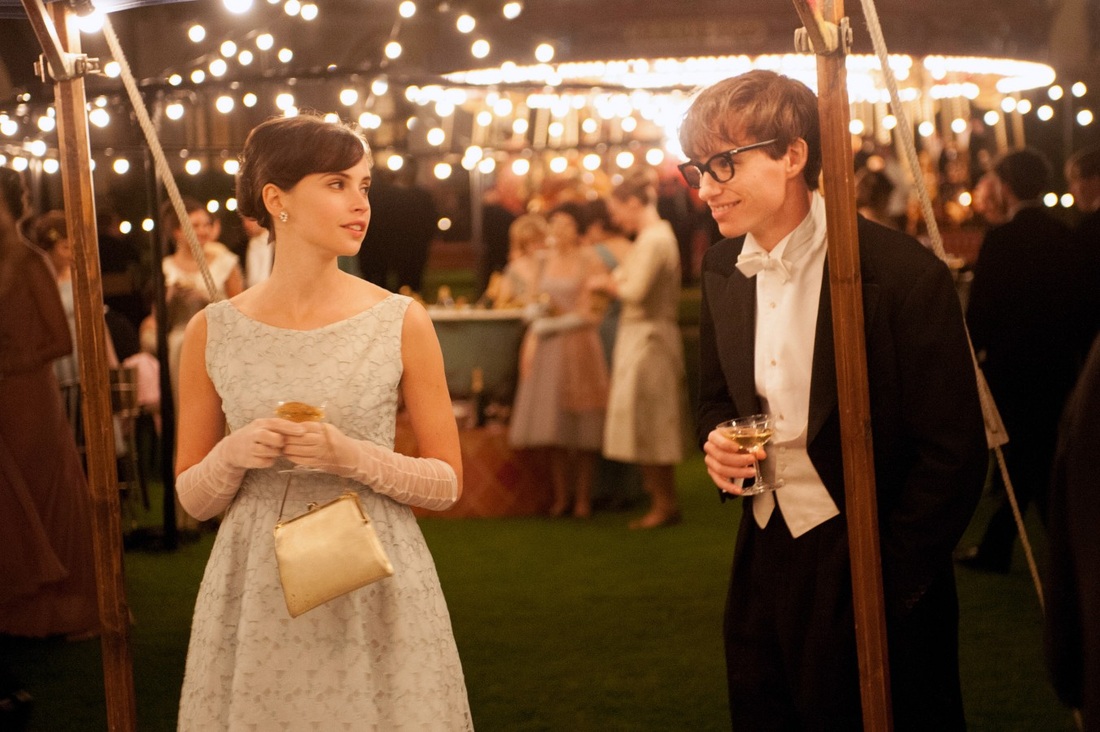So remarkable is Hawking’s life, in fact, that it might just be too remarkable for one film. Consider the elements at play: the disease itself (fascinating and morbid), Hawking’s Cambridge education, his triumph over doctors’ diagnoses, his incredible scientific career (ranging from black holes to the Big Bang to the nature of the universe), his marriage, his children, his critics, his divorce—even the technology he currently uses to write and speak. Any two or three of these together might have made a movie; The Theory of Everything attempts them all.
And therein lies the first great problem with the film: in its ambition to cover everything Hawking ever did, Hawking’s brilliance becomes, well, bland. Yes, we learn a bit about Hawking’s scientific work—from string theory to A Brief History of Time--but each is relegated to a single scene, with paint-by-numbers dialogue and only passing nods at the concepts. Hawking’s children are no more than caricatures, well-behaved, lifeless, forgettable. And Hawking’s critics? All mashed together into a single person, with a single line, a man who blusters three words about how Hawking’s latest theory is “nonsense!” If you can’t say it well, say it loud?
The Theory of Everything does better with Stephen and Jane’s relationship, from their courtship to their marriage to their eventual parting. The success here comes from the performances. Eddie Redmayne’s Hawking is always precisely tuned, whether he’s playing the goofy schoolboy or the defiant invalid. Meanwhile, Felicity Jones’ Jane balances naive optimism with real resolve. In a gripping scene, Hawking tries to force his crippled body up a short flight of stairs, just as an oblivious Jane laughs with guests one room away. It’s a deeply tragic moment, but the small flicker of resolve we see in each character—from Hawking’s singular determination to Jane’s attempt at normalcy—transform something hopeless to something strangely hopeful. Ultimately, this is not a story of defeat, but of two people who refuse to be defeated.
With moments like these, I can’t help but feel disappointed by how the film ultimately came together. We’re not left with an incisive portrait of marital determination, nor a mediation on the puzzling nature of the universe. Instead, we see a montage of everything—the university years, the disease, the births, the friends, the professors, the speeches, the kids, the fights, the end of a marriage. But for what? And why? In 2002, Stephen Hawking himself gave up on finding one ultimate theory that would explain everything in the universe, deciding that it was probably “unobtainable.” The Theory of Everything would do well to take notes.



 RSS Feed
RSS Feed
